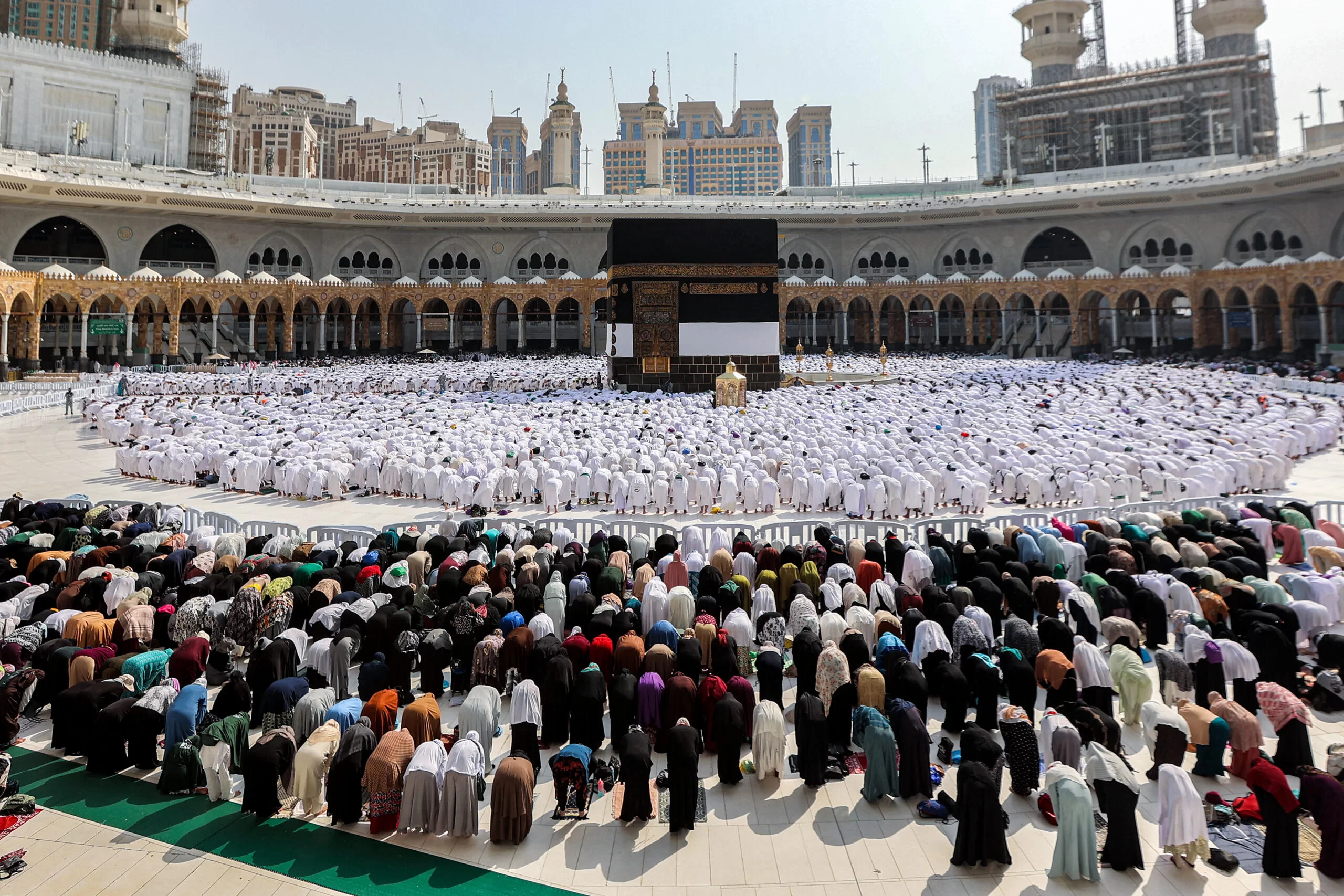- Thursday, April 03, 2025
The unregistered pilgrims can save thousands of dollars by spurning formal channels, but they risk arrest and deportation if caught by security forces.

By: Eastern Eye
TENS of thousands of Muslims try to complete the annual hajj pilgrimage on the cheap, officials and travel agents have said.
The hajj is one of the five pillars of Islam and must be undertaken at least once by all Muslims with the means. It involves a series of rituals completed over four days in Mecca and its surroundings in the west of Saudi Arabia.
The oil-rich kingdom makes billions of dollars each year from the hajj and from pilgrimages, known as umrah, made at other times of the year.
Last year, more than 1.8 million Muslims took part in the hajj, according to official figures. However, a Saudi security official, speaking on condition of anonymity, said there were also “about 100,000 irregular pilgrims”, a figure the government does not publicise.
The unregistered pilgrims can save thousands of dollars by spurning formal channels, but they risk arrest and deportation if caught by security forces.
Mohammed, who asked to be identified only by his first name, is one among those without an official permit. Living on canned beans and meat, the 70-year old Egyptian has been hiding out in a Mecca apartment for weeks, hoping to evade a Saudi dragnet and perform the hajj pilgrimage illegally.
“I have been seeking the official hajj permit in Egypt for more than 10 years and have had no luck,” Mohammed said, referring to the document allocated under a quota system for each country and distributed in Egypt via lottery.
Even if he had obtained a permit, the cheapest travel package provided by Egyptian authorities would have set the retired civil servant back 175,000 Egyptian pounds (around £2,910.35), a sum he said he could not afford.
Instead, Mohammed flew to Saudi Arabia after securing a tourist visa, then arranged for a travel agent to house him near Mount Arafat, where the Prophet Mohammed delivered his final sermon, at a cost of 3,500 Saudi riyals (£733.88).
As he prepares for the hajj rituals to begin later this month, Mohammed is cooped up in an apartment with seven other people, going out only when absolutely necessary. “I am prepared for every hardship. The weather is hot. I will drink a lot of water,” he said. “The most important thing is I will perform hajj.”
Large crowds have proved hazardous in the past, in 2015 when a stampede during the “stoning the devil” ritual in Mina, near Mecca, killed up to 2,300 people in the deadliest-ever hajj disaster.
Fears of a repeat have spurred Saudi officials to crack down on off-the-books pilgrims in recent years, said an official with the hajj and umrah ministry who spoke on condition of anonymity because he was not authorised to brief the media.
“The area of Mecca is very limited, and the illegal presence of large numbers hinders the organisation of crowds and the route of buses and may cause stampedes,” the official said.
Fines for unauthorised pilgrims and those involved in transporting them start at 10,000 Saudi riyals ($2,666). Since last month, officials have arrested at least 20 people accused of hajj-related “fraud”, most of them Egyptians, according to state media reports.
On roadsides and in shopping malls, signs depicting the Kaaba, the large black cubic structure towards which Muslims around the world pray, warn: “No hajj without permit”.
In April, the Council of Senior Religious Scholars got involved, issuing a ruling stating that “it is not permissible to go to hajj without obtaining a permit and anyone who does it is sinful” and guilty of “harming all pilgrims”.
But the illegal hajj problem persists. The introduction of a general tourism visa in 2019 has made it easier than ever for people to visit Saudi Arabia, including unregistered pilgrims.
“There are still a million ways to bring pilgrims to Arafat,” said one travel agent, speaking on condition of anonymity for fear of repercussions. “I have 100 buses entering Arafat (during hajj). Can they all be searched? It is impossible.”
This year’s hajj is expected to take place under physically taxing conditions, with temperatures averaging 44 degrees Celsius. For unregistered pilgrims, the risk of heat stress is even greater as they cannot access official air-conditioned camps. Some sleep in mosques or even on the side of the road.
A 37-year-old Egyptian who gave his name as Ayman, and who performed the hajj illegally last year after arriving on a tourist visa, described an arduous few day. “It was very tough. No services, no beds, no air conditioning, no bathrooms,” he said.
“Not to mention,” he added with a laugh, “the focus was on evading security forces instead of focusing on prayers and supplications.” (AFP)